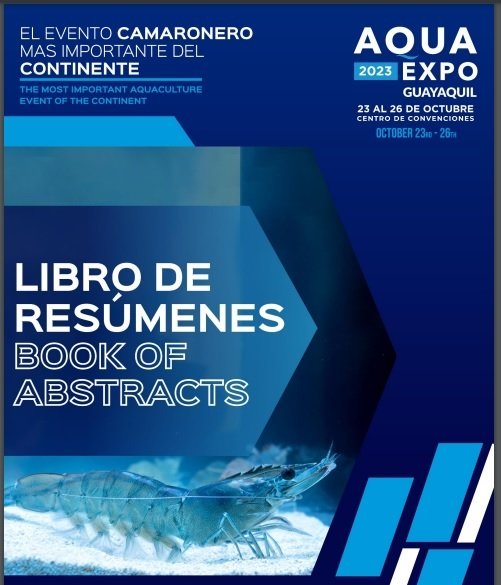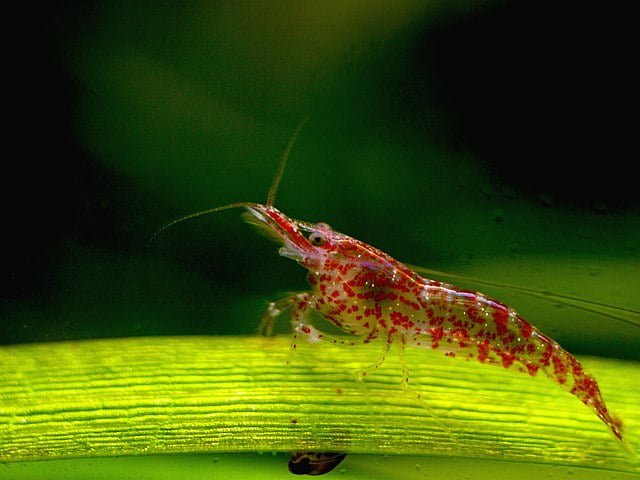
Ecuador – Between October 23 and 26, the Aqua Expo 2023 fair was held, an event organized by the National Chamber of Aquaculture (CNA), which brought together various experts from the global shrimp industry.
In line with its commitment to sustainable aquaculture development, the CNA has published the Abstract Book of the conferences that took place at Aqua Expo 2023.
Yahira Piedrahita, a member of the Technical Committee of Aqua Expo 2023, emphasized that “the shrimp industry faces various challenges in terms of sustainability and market issues,” and that “climate change and ocean acidification represent additional challenges as they can affect shrimp growth and reproduction.”
Aqua Expo 2023 offered a conference program with presentations by experts covering topics such as sustainable aquaculture practices, new technologies, market trends, environmental conservation, nutrition and feeding techniques, among others.
Health Management
In this session, presentations were given on shrimp diseases caused by new strains of Vibrio and the effectiveness of a cocktail of specific and lytic bacteriophages therapy for the control of pathogenic Vibrio sp. and Pseudomonas sp. in shrimp farms.
The speakers also discussed biosecurity in the shrimp value chain, strategies for controlling Enterocytozoon hepatopenaei (EHP) microsporidium, the impact of bioremediation and probiotics on shrimp production, the effects of organic acids and botanicals on vibriosis, among other topics.
New Technologies
In this session, speakers discussed the use of feeds and cooked foods, shrimp farming technology, precision biometrics, and the use of artificial intelligence in shrimp production, data analytics to optimize shrimp production.
Water and Soil Quality
Session 3 was dedicated to discussing topics related to water and soil quality in shrimp farming.
Speakers presented topics related to the use of products for bioremediation, and the use of marine probiotics, symbiotics, probiotics, and paraprobiotics.
Stay Always Informed
Join our communities to instantly receive the most important news, reports, and analysis from the aquaculture industry.
Nutrition and Feeding Strategies
In this session, presentations focused on discussing food composition to improve shrimp’s immune response, the use of potassium dichromate in juvenile shrimp diets, and shrimp nutrition in the early stages.
There were also presentations on the concepts of immunonutrition applied to shrimp production, the use of protein hydrolysates to replace other marine-origin ingredients, the inclusion of black soldier fly meal in shrimp diets, smart food management for shrimp aquaculture, among others.
Sustainability and Certifications
Session 05 was dedicated to presenting papers on sustainability and certifications. In this regard, the speakers highlighted the importance of traceability to ensure business profitability, decarbonization, and digital transformation in the shrimp sector, certification of health and well-being in shrimp farming, and the aquaculture industry’s compliance with the Sustainable Development Goals (SDGs).
Genetic Improvement
Genetic improvement is key to the development of the aquaculture industry. This session presented research results aimed at identifying genes of resistance in white shrimp to White Spot Syndrome Virus, the use of DNA tools to improve vannamei shrimp genetics, return on investment (ROI) for genetic improvement investments, among other topics.
Production Systems Management
Session 7 included various presentations related to the management of aquaculture production systems.
A recurring theme was the potential effects of the “El Niño” phenomenon on the Ecuadorian shrimp industry. Additionally, discussions were held on technologies applicable to shrimp farming.
Market Situation and Trends
The presentations discussed shrimp overproduction in India and Ecuador, the impact of commodity price volatility.
Processing and Quality Control
Session 9 included speakers who discussed the use and control of sulfite residues in crustaceans, the effectiveness and synergy of antioxidants and optimization of antioxidant strategy in balanced food, the importance of microbiological control in shrimp processing, shrimp harvest management trilogy, and the advantages of moisture restoring agents in shrimp processing.
Finally, the abstract book includes a directory of the companies that participated in the trade fair.
Reference (open access)
Cámara Nacional de Acuacultura. Aqua Expo 2023. Book of Abstracts. 225 p.
Editor at the digital magazine AquaHoy. He holds a degree in Aquaculture Biology from the National University of Santa (UNS) and a Master’s degree in Science and Innovation Management from the Polytechnic University of Valencia, with postgraduate diplomas in Business Innovation and Innovation Management. He possesses extensive experience in the aquaculture and fisheries sector, having led the Fisheries Innovation Unit of the National Program for Innovation in Fisheries and Aquaculture (PNIPA). He has served as a senior consultant in technology watch, an innovation project formulator and advisor, and a lecturer at UNS. He is a member of the Peruvian College of Biologists and was recognized by the World Aquaculture Society (WAS) in 2016 for his contribution to aquaculture.







